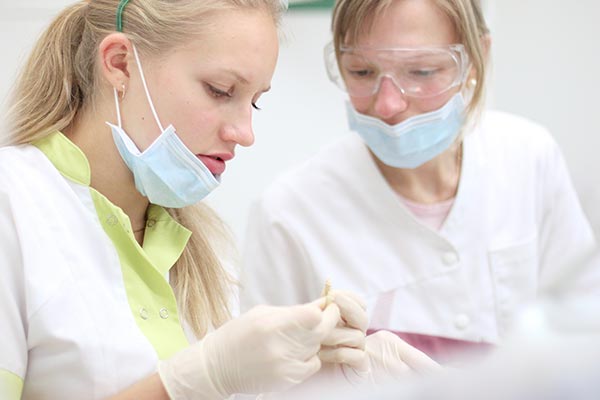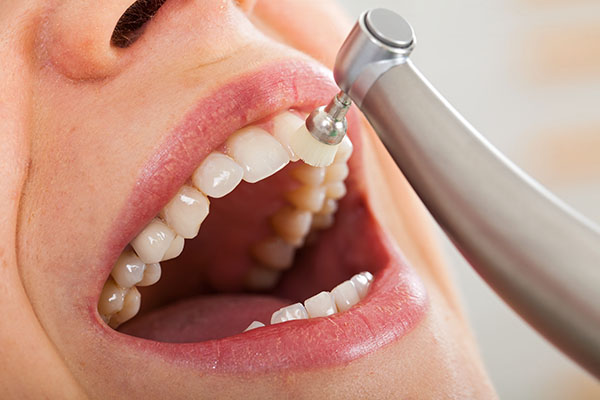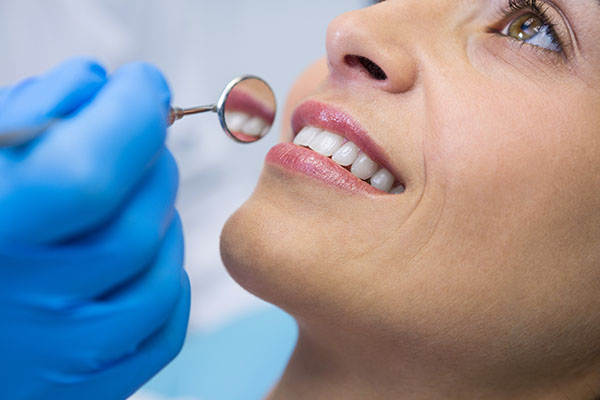 A general dentist is a professional in a position of enormous trust. A dentist's duties include diagnosing and sometimes treating conditions of the mouth to relieve oral pain, as well as performing prophylactic treatment to prevent dental conditions. Becoming a dentist involves meeting requirements set by the state to obtain a dental license. To get to that point, a person wishing to become a dentist must undergo extensive education and training to receive an advanced degree.
A general dentist is a professional in a position of enormous trust. A dentist's duties include diagnosing and sometimes treating conditions of the mouth to relieve oral pain, as well as performing prophylactic treatment to prevent dental conditions. Becoming a dentist involves meeting requirements set by the state to obtain a dental license. To get to that point, a person wishing to become a dentist must undergo extensive education and training to receive an advanced degree.
General dentist requirements
It is illegal to practice dentistry without a license issued by the state in which one works. While each state has its own individual licensing requirements, there are some steps that are essentially universal.
Education
To be eligible for a license to practice dentistry, a person must receive either a Doctor Medicine in Dentistry or Doctor of Dental Surgery degree. Apart from the names, the two degrees are identical. Each program typically lasts four years and involves clinical practice under the supervision of a licensed dentist during the latter half. The first half of the program is devoted to classroom and laboratory studies:
- Oral pathology
- Radiology
- Orthodontics
- Periodontics
- Pharmacology
Some states require that a person earn the DDS or DMD degree from a program with the accreditation of the American Dental Association.
Many dental schools require a bachelor's degree as a prerequisite for admission. Others allow a person to finish the bachelor's degree concomitantly with dental school courses. In either case, the individual does not need to major in a specific pre-dental field. However, coursework in sciences such as chemistry and biology may be helpful.
Assessments
After completing the required undergraduate work, a person must pass the Dental Admission Test as part of the application to dental school. The DAT assesses scientific knowledge and academic capacity. Dental schools may set a minimum score that students must attain to be eligible for admittance.
Upon completing one's DMD or DDS, students must pass the National Board Dental Examinations to be eligible for licensure. The written exam assesses knowledge of clinical procedures, dental sciences, and ethics. It is taken in two parts.
Preparatory opportunities
Some aspiring dental students may have the opportunity to enroll in programs that provide additional training and mentoring. For example, selected college and university campuses host a six-week dental school preparation program during the summer. Students get a firsthand look at dental work in the setting of a clinic. They also gain academic enrichment, financial advice, and career development. The American Student Dental Association offers a mentoring program that provides guidance through the process of gaining admission to dental school.
Conclusion
Becoming a dentist is a long process starting with undergraduate coursework, which may or may not focus on the sciences, before gaining admittance to a dental school. Upon completion of a four-year DDS or DMD program, dental students must pass national board exams and meet other requirements set by the state to become eligible for a dental license to practice as a general dentist.
Request an appointment or call Founders Dental at 720-893-7362 for an appointment in our Castle Rock office.
Recent Posts
Visiting the dentist can be an anxiety-inducing event for many people. The biggest reason for this is that general dentistry appointments are often associated with painful procedures and a perceived loss of control as you lay back and let the dentist and dental assistant perform their duties. It might also be possible that you are…
General dentists can perform dozens of different procedures, so they may have a long list of offered services. A general dentist focuses on the prevention (and fast restoration) of oral health issues. However, they may also provide more extensive procedures, such as teeth replacement, when necessary.Some general dentistry services are more common than others. Specifically,…
Be sure to see a general dentist before a toothache or other dental emergency. It benefits you to be proactive with your dental care and take advantage of all the ways a general dentist can help protect your teeth and overall oral health. A dentist does more than just treat dental problems. Preventive dentistry is…


